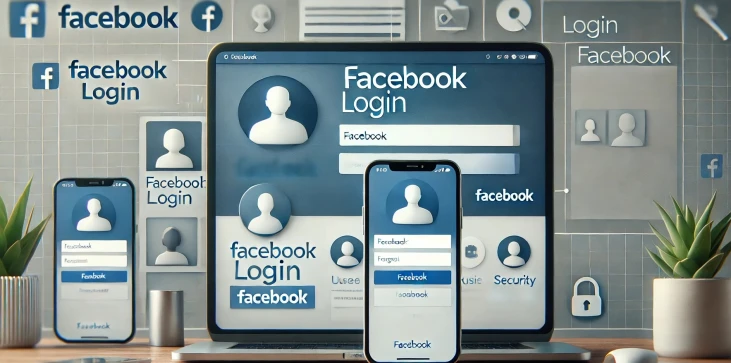
In today's digital age, user authentication is a critical aspect of any website or app. Offering a convenient, secure, and fast way to log in is essential for both user satisfaction and data protection. Facebook Login provides a reliable solution by allowing users to sign in to third-party sites using their Facebook credentials. This not only reduces the need for multiple accounts but also improves the security of personal data. In this article, we will explore how you can implement Facebook Login on your website, its benefits, and how it enhances user engagement. Let’s dive into how this feature can be a game-changer for your online platform.
Integrating Facebook Login is a smart move for websites that prioritize user experience. With over 2.9 billion active users on Facebook, most users are familiar with the platform, making it easier for them to trust the login process. Facebook Login allows users to access your site quickly, without remembering additional usernames or passwords. This frictionless login process encourages higher conversion rates and lowers bounce rates, as users prefer platforms where they can log in easily.
Additionally, Facebook Login provides secure authentication protocols, ensuring the privacy and safety of user data. Facebook has implemented rigorous security measures, including encrypted data transfer, token-based verification, and two-factor authentication options, further safeguarding users.
To integrate Facebook Login into your website, follow these steps:
By following these steps, your website will allow users to sign in seamlessly using their Facebook credentials, enhancing user satisfaction.
The primary advantage of Facebook Login is the improved user experience it offers. Users can log in with just a few clicks, eliminating the need to create or remember multiple accounts. This simplicity not only saves time but also encourages user retention.
Another key benefit is the access to social data. With user consent, Facebook Login allows businesses to gather valuable insights into user preferences, demographics, and behaviors. This information can help in personalizing content, improving marketing strategies, and offering better services.
Lastly, Facebook Login provides added security. Since users don’t need to create unique passwords for your site, the risk of weak or repeated passwords is reduced. Facebook’s robust security infrastructure ensures that users’ data is transmitted and stored securely.
While Facebook Login offers many benefits, it’s important to follow best practices to maximize its effectiveness:
Implementing Facebook Login on your website can significantly enhance user experience, streamline authentication, and provide valuable social insights. By offering a simple, secure login method, you not only improve user satisfaction but also strengthen your site's security. Following best practices and ensuring smooth integration is key to leveraging the full potential of Facebook Login. Make the switch today and see the difference it can make for your platform's engagement and user retention.

One of the main concerns with Facebook Login is how user data is accessed and used. Websites should clearly communicate what data will be collected through Facebook Login and obtain explicit user consent. Implementing transparent privacy policies and adhering to GDPR compliance can help in alleviating user concerns regarding their data.
Yes, Facebook Login is highly suitable for mobile apps. Facebook provides a mobile SDK, which is optimized for both iOS and Android devices. When properly implemented, it ensures a smooth and fast login experience across all mobile devices, encouraging user engagement through convenience.
Absolutely. Facebook Login can be implemented alongside other authentication options like Google or traditional email logins. Providing multiple options gives users flexibility in choosing their preferred login method and can improve user adoption rates across diverse audiences.